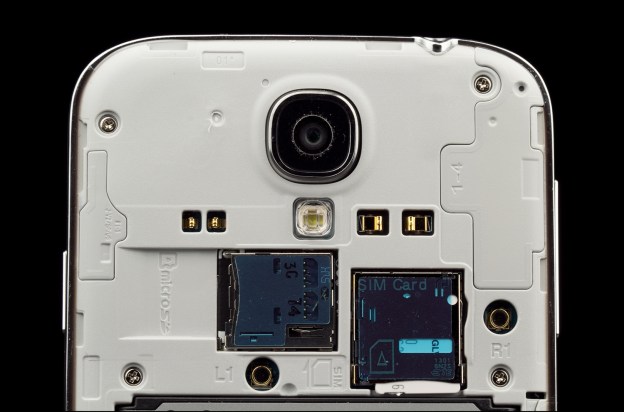
Two hot bits of tech are in the rooting news today, with amusing stories of Google Glass and Samsung Galaxy S4 hackery.
First, the Google Glass “Explorer Edition” may have only been in anyone’s hands for a few days, but they’ve figured out a way to root the ol’ facehugger. The thing isn’t even in stores yet, and hackers have already gotten their grubby little sausage fingers into its Android OS. (For more information on Rooting, check out our Rooting How To and Best Rooting Apps.)
Jay Freeman, aka Saurik, is a legend in the iOS hacker community. In an interview with Forbes, he credited fellow hacker B1nary with finding the Android 4.0 exploit he used to crack Glass. The technique entails tricking the device into thinking’s it’s an emulation, as opposed to real hardware. This opens up all the permissions, and achieves root access, since emulations are only used for testing.
Freeman isn’t even the first to do it – another hacker named Liam McLoughlin did it a day earlier. This might be good news for those worried about Google’s ability to remotely deactivate Glass if you try and sell it.
In related news, “drbliss” of XDA Developers has reported that, as long as you’ve got a U.S. model, or any model with a Qualcomm Snapdragon 600 processor, you can root your Galaxy S4 with the old Motorola exploit called “Motochopper.”
First, make sure you’ve got the most recent Samsung USB drivers on your device. Then, download the Motochopper archive. Next, if you’re on Windows, you’ve got to run the supplied run.bat batch file. If you’re on OS X or Linux, it’s the run.sh Shell script. Again, none of this will work on international variants of the device with Samsung’s Exynos 5 Octa chips.
Here’s a really important warning if you’re going to do this: the Galaxy S4 currently doesn’t have any custom recoveries or stock images to help you navigate the menus while toying around with your rooted phone, so fixing it could be a serious problem if your tinkering ends up bricking or soft-bricking the device. That said, developers will almost certainly take care of the issue before too long.
Update by Jeffrey Van Camp on 4-28-2013: There has been some controversy over Google Glass, and whether it was really “rooted” or hacked at all. Everything was hashed out in this Google+ thread. Here’s the gist of the conversation, though it gets rather technical.
Stephen Lau, a software engineer at Google involved in the Glass project, posted that Glass cannot be hacked, cracked, or rooted because Google already released as an open product. Jay Freeman, who we discuss in this piece, defended himself, saying that “The ability to unlock the bootloader is cute and all, but it is kind of pointless if I don’t have anything I can flash.” Stephen Lau later admitted that Google may have failed to release all the materials hackers might need to go to town and toy around with Glass. So, in the end, everyone is right. Jay Freeman did “root” Glass, and Google did intend for it to not need “rooting.” Now, can we all get along?
Article originally published April 27, 2013.